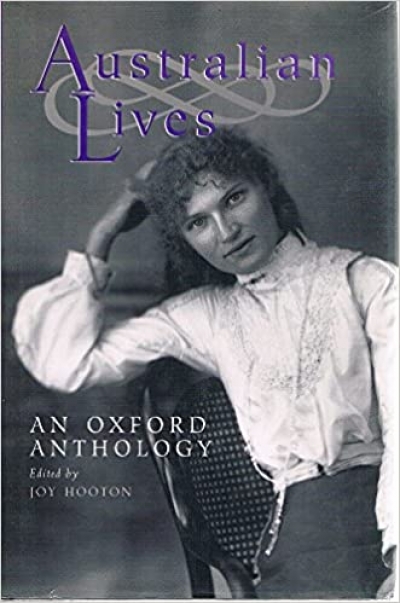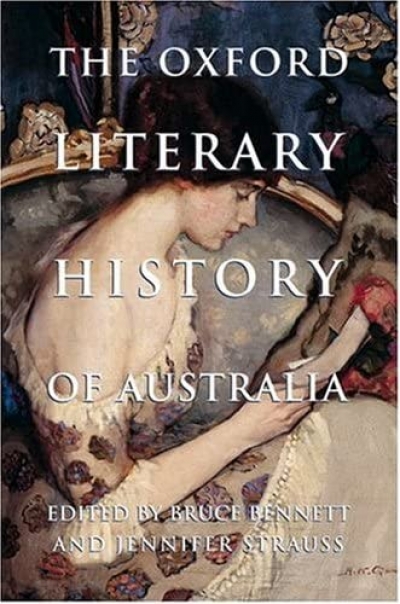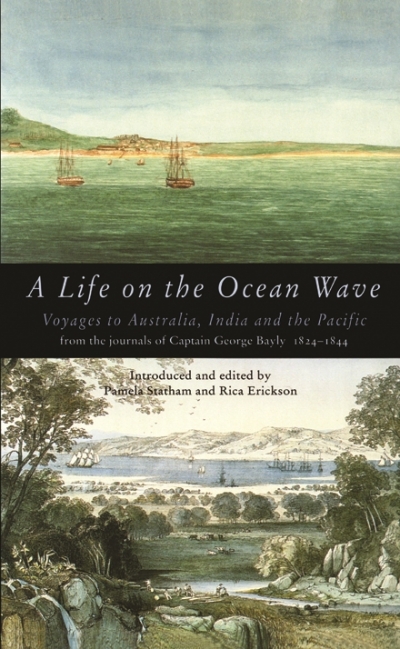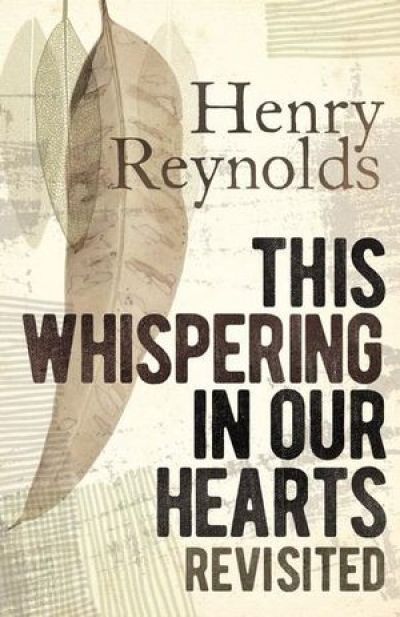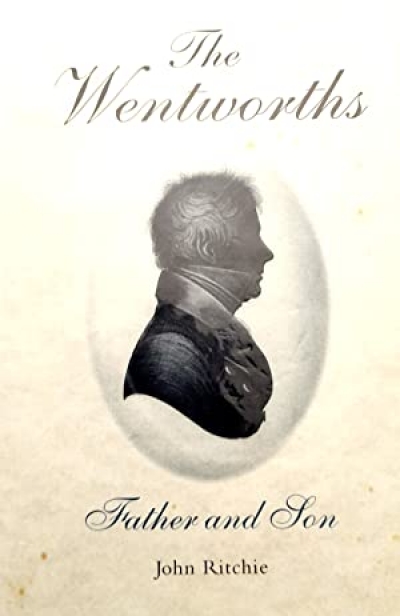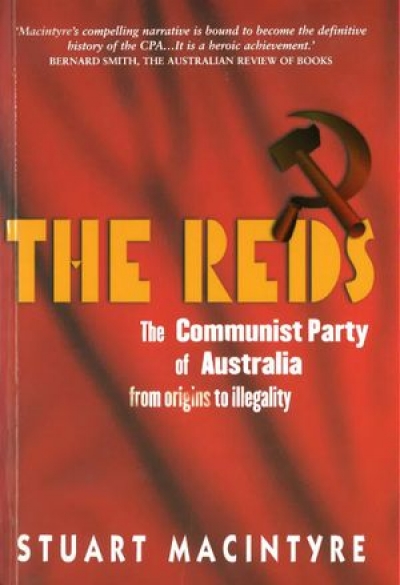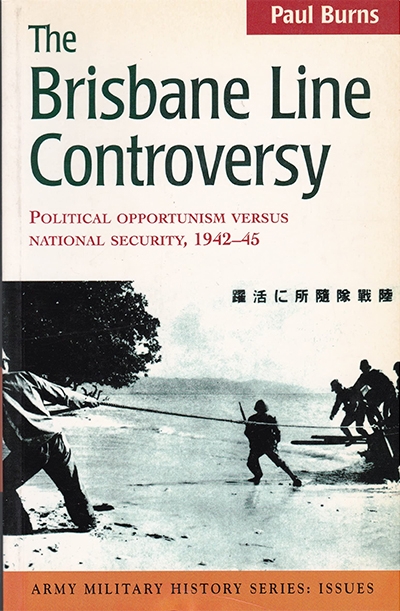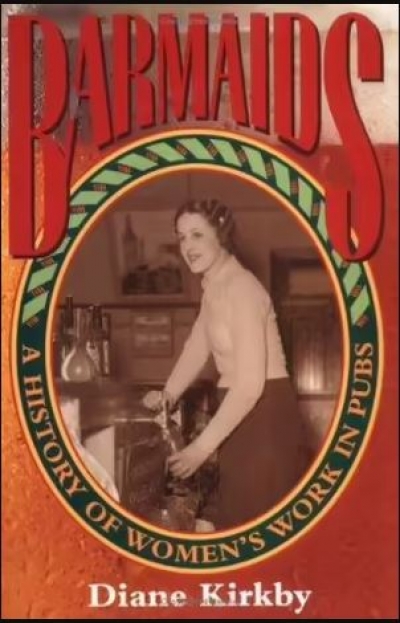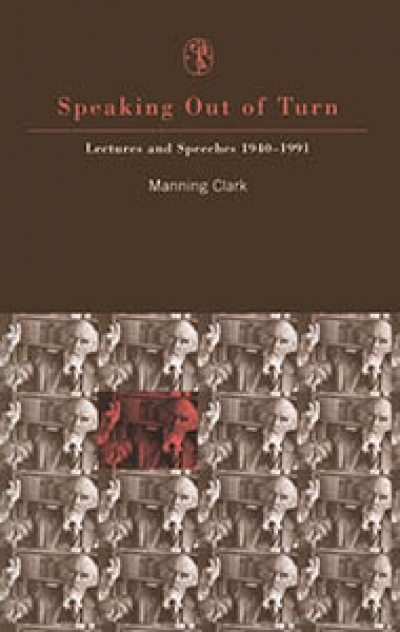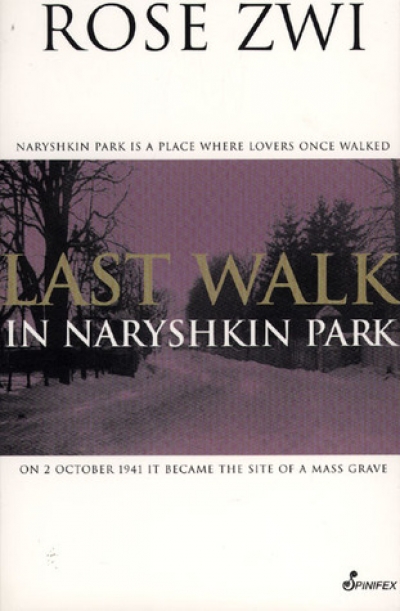History
Joy Hooton must know more about Australian autobiography than anyone else. Her critical and bibliographical works are now complemented by this marvellous anthology – humorous, plangent, and surprising. It replaces the more literary Penguin anthology by the Colmers (an important collection, though now somewhat outdated), and more than accounts for the period not dealt with in Gillian Whitlock’s impressive UQP anthology of contemporary Australian autobiography.
... (read more)The Oxford Literary History of Australia edited by Bruce Bennett and Jennifer Strauss
The index to this literary history lists four references – one neutral, three critical – to Leonie Kramer as the editor of the 1981 The Oxford History of Australian Literature and one each to the publication itself, to Adrian Mitchell, who was responsible for the survey of fiction, and to Vivian Smith as the author of the section on poetry – there is no reference to Terry Sturm, who wrote on drama. None of the sixteen critics and scholars who contributed to the new survey engages in any significant manner with the aims and aspirations of that publication, even ‘though it is acknowledged in the Introduction – together with the work of H.M. Green, Cecil Hadgraft, Geoffrey Dutton, G.A. Wilkes, Ken Goodwin, Laurie Hergenhan, Bob Hodge, and Vijay Mishra – as providing ‘frameworks and a background of references’. The implication seems to be not so much that The Oxford History of Australian Literature reflects an unjustifiably conservative view of national literature – a complaint that arose almost as soon as it was published – but that its methods, ideals, and emphases are irrelevant to the literary culture of the late nineties.
... (read more)A Life on the Ocean Wave: Voyages to Australia, India and the Pacific from the journals of Captain George Bayly 1824–1844 edited by Pamela Statham and Rica Erickson
A white-haired, white-bearded Captain George Bayly peers benignly out at us from the 1885 photograph frontispiece of A Life on the Ocean Wave. With epaulettes to his black uniform jacket, braided sleeves, a sword at his side and a ceremonial captain’s head-piece on the table beside him, Bayly looks the quintessential retired man of the sea. He looks like a man Charles Dickens should have been describing. We should be meeting him in some sea-side parlour, in some sailortown tea-palace. He looks as if he has a story to tell.
... (read more)I remember a conversation a year or so ago with an Australian scholar who had recently returned after a stint in Europe and was astonished to hear colleagues refer to Henry Reynolds as a ‘populariser’ and not true historian. I’ve heard it myself. Now that Reynolds has become a full-time writer we can expect to hear it more often. All of which goes a long way toward explaining why academic history is in decline.
... (read more)Jane Austen’s aunt was once at risk of transportation to Botany Bay for shoplifting. It is piquant that Austen named two of her major male characters Fitzwilliam Darcy in Pride and Prejudice and Captain Wentworth in Sense and Sensibility, because a leading inhabitant of New South Wales in those years was D’Arey Wentworth, disreputable but acknowledged kinsman of Lord Fitzwilliam. D’Arey Wentworth’s career smacks more of Georgette Heyer than Jane Austen, since he was a highwayman four times acquitted. Rather than push his luck further, he went, a free man, as assistant surgeon with the Second Fleet in 1790. As a young teenager Jane Austen may have read about him in the Times.
... (read more)
The Reds: The Communist Party of Australia from origins to illegality by Stuart Macintyre
The fascinating remembrance of the first two decades of the Communist Party of Australia is the first general history of Australian communism since Alastair Davidson’s The Communist Party of Australia: A short history appeared in 1969. Stuart Macintyre’s The Reds is both erudite and, as befits a former CPA member of Presbyterian background, is infused with moral vision.
... (read more)The title is not provocative: The Brisbane Line Controversy, but Paul Burns’s subtitle flags the partisanship that will mark his study. This is a case, he contends, of ‘Political Partisanship versus National Security 1942–45’. His conclusion is unobjectionable: ‘belief in a “Brisbane Line” was our barometer of fear about the vulnerability of our own continent which no Australian Army could negate’. In political demonology, the Brisbane Line signifies the intention of the Menzies–Fadden conservative governments of 1939–41 to abandon all but the south-east corner of Australia to the Japanese, should an invasion come. Burns is keen to absolve Menzies and his colleagues of blame and to find where, and with whom, the notion of the Line originated. In the process he indicts Labor front-bencher Eddie Ward, whose allegations about a Brisbane Line led to a Royal Commission in the election year of 1943.
... (read more)Barmaids: A history of women’s work in pubs by Diane Kirkby
No icon better encapsulates the ethos of male culture than the pub. Sharing a beer in this bastion of male conviviality has been a defining experience in shaping Australian male identity. The pub as a cultural and social institution has attracted the attention of many historians, but none have considered the ubiquitous and yet mysteriously anonymous figure of the barmaid. Although represented in fiction and film, and up until recently, a part of the very fabric of pub culture, the barmaid remains an elusive figure in Australian history.
... (read more)Speaking Out of Turn: Lectures and speeches, 1940–1991 by Manning Clark
I heard Manning Clark lecture just once. It was in 1981. He was addressing a hall packed with school students who were attending a history camp at the Australian National University. That night, Clark demonstrated two qualities which distinguish most good lecturers: he played a character who was an enlarged version of himself, and he convinced the gathering that his topic was central to any understanding of the human condition. He told his young audience that they were faced with a great choice. With their help, Australia might one day become millennial Eden – a land where men and women were blessed with riches of the body and of the spirit. But if they were neglectful, he warned, their country would remain oppressed by a great dullness: Australia would continue to languish as a Kingdom of Nothingness. (This speech, it should be noted, was delivered in the middle of that bitter decade which followed the dismissal.)
... (read more)Holocaust denial comes in many guises. One is the comfortable belief that European nationals were ignorant of the slaughter of their fellow Jewish citizens, and would have been appalled had they known. Daniel Goldhagen’s Willing Executioners: Ordinary Germans and the Holocaust has been the most controversial challenge to this so far, but it is not alone. Abraham Biderman, survivor of Auschwitz, Buchenwald and Bergen-Belsen, whose memoir The World of My Past had difficulty finding a publisher here but went on to win awards, is reluctant to exaggerate about the Poles. Nevertheless he writes, ‘With hindsight, however, it seems to me that the majority of them were happy to see the Jews destroyed.’
... (read more)
